Podcast Transcript
Note: This is an automated transcription and may include errors.
Welcome to the cut maker golf podcast, your home for in-depth reviews of PGA players that will help you make more informed daily fantasy plays and golf wagers four days a week. We provide five to seven minutes on a different PGA tour player player from some of the most famous to some that you’ve never heard of. Each Wednesday we will highlight the tournament of the week and give out one of our plays for that tournament. Don’t want to spend a ton of time doing golf research? We’re still here to help. Text Golf to 855-GOLF-POD. That’s text Golf to (855) 465-3763 for $25 a weekend.
The price of a large pizza, double vodka, red bull or whatever you’re into. You’ll receive our top three fantasy golf plays, picks to win the tournament that week and tournament head-to-head wagers that we like. More importantly, you’ll receive our round by round head to head match-up plays that we believe provide one of the greatest values in sports betting today. So you can expect to receive a text on Wednesday afternoon with the tournament-long plays, Friday morning with the second round plays, Saturday morning with the third round plays and Sunday morning with final round plays and some live outright winner values that we like for a total of between 12 and 30 plays for a weekend. So remember text GOLF to 855-GOLF-POD, that’s text GOLF to (855) 465-3763 to receive every wager we make for every golf tournament. And now let’s get onto the show.
Welcome to the opening edition of the Cut Maker Podcast. Our goal here is to help you make more informed daily fantasy plays and wagers on PGA tour events. Four days a week we will be breaking down players from a daily fantasy and wagering perspective in five to seven minute pods on Wednesdays. We’ll be covering the tournament that week and give out one of the wagers we’ll be making this week. This episode is designed to help the beginning golf better understand key considerations and types of wagers that can be made on golf tournaments. If you have specific questions not addressed here, you can find me on Twitter @hehaithme. Yes, I created my Twitter account several years ago and it’s named after former Missouri head basketball coach Frank Cave. Now let’s get into golf bedding. Before you wage a penny, there are a few certain considerations that you need to know. When betting on golf plan on making a lot of bets and losing plenty of them.
Our goal here is to give you information to make more profitable decisions and ultimately you will win more than you lose, but you’re going to be making bets that range anywhere from 15-1 to 150-1 every week. You’re going into those knowing you’re going to lose far more often than you’re going to win, but you only need to win a few of those to book a nice profit. Knowing you are going to be making a lot of bets between outright winners, top tens, top 20s, head to heads, etc. It’s a good idea to keep your bets small. Quote unquote small might be $5 for some of you it might be $1,000 for others it doesn’t matter, but small is a critical component here. Just go into a week knowing you’re going to be making 20 to 30 bets across various bet types and sizes, so plan accordingly. When you’ve determined how much you can afford to invest for a bank role,
take advantage of bonuses and understand before you deposit where the best places are to play. This is going to vary widely by geography. If you live in Vegas, if you live in Indiana, if you live in Florida ord New Jersey, Pennsylvania, there are all sorts of variables out there, but understand the landscape of your particular community and the options that are available to you. And then make sure you look at the bonuses. There are a lot of great bonuses out there initially when you’re looking to open an account, make sure you maximize those and take advantage of those accordingly. Now let’s talk about the types of golf bets. There are several different types of golf bets worldwide. For the purposes of this discussion, we’re going to focus on the four types of golf bets that are widely available in the U.S. There are each ways in Europe and Canada and so on, but we’re going to focus on what we’re going to call here, the core four.
So the first one is outright winners, which most people understand. These are bets that are generally listed at 7-1 or you might see it as +700 and these are best that provide the greatest upside and they feel amazing when you hit one. They’re far more difficult to win and they provide the greatest amount of variance. So we always want to look at this and say, okay, we’re making a bet on an outright winner. Where is the value? Where is the value? And we’re always looking for value. We’ll talk about value more as this podcast goes on. We’re looking for value in our outright winners. This always brings what’s known as hedging into the conversation. If you don’t know what hedging is, it’s when you have a bet on a person, usually a small bet to win a lot of money and you think that there’s a better than average chance that your person may not win coming down the stretch opinions on hedging very widely, I’m of the opinion you should hedge.
If the amount of money you will win will have a significant meaning to you. If you bet $10 on someone at 10 to one and they are winning or in the hunt, I wouldn’t hedge. However, if you bet $100 on someone at 150 to one and they’re enclosed contention on Sunday, I would consider a hedge. That person was 150 to one to begin with for a reason and you could still potentially lock in a meaningful profit. The next step I bet we’re going to talk about is very straight forward as well. And these are top fives, top tens, top 20s they offer lower odds, but these are a great way to get exposure to some long shots you like without having to bet them to win. You’ll often see folks who are say 150 to win outright as maybe a plus 900 or nine to one for a top 20 those provide tremendous value that you can cash far more often than you’re going to cash your 150 outright winners.
So top fives, top tens, top 20s, super important bets to always consider another popular type of wager, our groups and group by nationality or region. So you’ll often see a top Aussie top South African top, great British Irish player and so on. And these are really good spots to try to bet someone like an Adam Scott and new STI or Rory McIlroy, Justin Rose, Ian Poulter and so on, depending on the tournament clearly. But these often offer very solid prices relative to the field. So you may say, okay, a top Aussie is a great example. Jason Day hasn’t had tremendous form this year. Um, cam Smith had a really good tournament and and can play well on occasion, but Adam Scott generally lately has been by far and away the class of say the quote Aussie field. He’s been someone you’ll want to look at. He’s always a guy you want to look at.
In the South Africans there are more and more South Africans that are heating up now and some really nice plays, but [inaudible] he’s wanting to consider the next area. We’re going to discuss our head to head or three balls slash three man match-ups. In my opinion, this is the most profitable way to bet golf. Clearly who wins is important, but not as much as making the right plays that will win more often than not. Here’s an example. If you’re playing blackjack and the dealer has a six showing you as the player have a 24% advantage, you’re going to double down a ton of hands in that situation because you want to get as much money on the table when you have that advantage that I understand, this is an extreme example, but the same is true for golf. We want to bet when the price or align on a particular matchup does not accurately reflect the chances of that player winning.
According to our statistics or our model. This where what I call quote Moneyline math comes into play first. Understanding money lines. All money lines are based on a $100 wager and this is what throws so many people off and scares people away from golf or baseball is they see the money line and they don’t understand it. It’s very, very simple. Just understand everything is based on a $100 bet. So if you see a money line of minus one 10 that means you have to bet $110 to win a hundred for a total payout of $210 the $110 you bet, and the a hundred dollars that you want a money line of minus two 50 means you have to bet $250 to win $100 for a total payout of three 50 the two 50 you bet the a hundred you won. Conversely, a money line of plus one 50 means if you bet $100 you will get 150 for a total payout of 200 and so a lot of people get scared off on this, but it’s very, very simple.
Just remember the hundred dollar base value and go from there. It is true that you will often see a spread between the favorite and the underdog, so it’s not uncommon to see a 20 cents spread. So it might look like a favorite of minus one 50 and an underdog of plus one 30 that’s where it would throw some people off. They are not even bookmakers build in a spread in there, but just understand the concept is the same. If you could bet 150 you’re going to win a a hundred on the favorite. If you bet a hundred on the underdog, you’re going to win and one 30 what do you think the odds of a certain player winning a certain matchup bar, that’s ultimately what we’re asking ourselves. What are the odds of that person winning? If I think there’s a 70% chance that Webb Simpson has a better finish than Jordan Speith and a tournament, then I would take the 70 divided by 30 and I would get 2.33 so I’ll repeat that.
If I think that there is a 70% chance that Webb Simpson will beat Jordan Speith and just Jordan Speith finished higher than Jordan Speith in a particular tournament, then I would take 70% that’s the chances. I think that he’s going to win 30% which are the odds against it. And so there’s a 30% chance he won’t win and I would get 2.33 that translates to a money line of minus two 33 so if you are looking at a favorite, you can say, okay, I am going to look at the chances I think of a favorite winning divide that by the balance. So in my case 70 divided by 30 and come up with your Moneyline. Now if I see a money line at a sports book of say minus one 50 in my example I’m going to be betting on Webb Simpson, a money line of minus one 50 says that that sports book believes that Webb Simpson has a 60% chance to win.
60 divided by 40 is 1.5 equating to a minus one 50 Moneyline. So I would make a bet on Webb Simpson in that example. This is a little bit extreme. I understand cause I’m kind of throwing that example out there. But any time we see value between uh, what we believe the odds are and what the Sportsbook believes the odds are. We want to make a wager. Some sites like FanDuel and DraftKings and many others offer tournament three ball match-ups that can provide some great value as well, especially during the tournament. So we found times, a great example is in this 2020 Honda classic, we found Ben on an a case where he was in a three ball against Gary Woodland and Billy Horschel three ball slash three man matchup and Benayoun was plus eight 50. So yes, he was a few shots back but a hundred dollar wager paid out, you know, eight 50 in that scenario, a one that worked out well for us, Ben ended up coming back and making a run at winning and held off Woodland late and that wage paid out.
So yeah, there’s a bunch of things to consider but understanding the price is critical. Understanding how the pricing works and that you are looking at the odds of a person to win and translating that into a price where I think perhaps the greatest value and opportunity is in head to head match-ups is in these round by round match-ups. I think these provide the greatest value because they don’t have a ton of time to get corrected by the market. They’re posted a few hours after a round is over and then close the next morning after people start teeing off. They also have a lot more variants though a K a a lot more chances for crazy things that happen because they are only one round match-ups. We don’t have two or four rounds for the better skilled player or the person we like more to level things out. It’s one round.
A lot of things can happen, but I’ll take the pricing opportunity, uh, and mispricing if you will, and just let the variants ride. One of the things that makes variants or crazy things happen is whether we know that we can look at forecasts and see what the weather’s going to be like, but it’s very difficult to truly build weather into a model. We know some players are quote better wind players than others or better players and slow greens or better players in certain wind or weather conditions. However, there are relatively small sample sizes and difficult to really, I believe, come up with a truly predictive measure. If it’s a tough course was tough weather variance is going to come into play far more than otherwise. Timing is really critical on these head-to-head, uh, round by round match-ups because it doesn’t take a ton to move the lines.
There aren’t a lot of people betting on these bets and so it’s important to get the best price you can before these move because they do move, you know, a ton more than say a, an outright win or not right prediction or certainly an NFL game and NFL game being perhaps the most stable market. These are highly volatile markets and that you want to make as soon as you possible key terms that we’re going to be using on this podcast throughout the course of the year. So I use five different sites when building my predictions for the week, one of which is fantasy national. A lot of the timeframes that I will reference on this pod last 24 rounds, last 100 rounds, et cetera, are those timeframes because these are the increments in which fantasy nationals sorts some of the data. Additionally, I’ll use a lot of different terms from different sites, but those that aren’t immediately clear to everyone are ball striking in short game strokes gained or just that the number of strokes that a player gains or loses against a field and a particular tournament.
It’s important to properly identify the strength of the field when looking at strokes, gained strokes gained in the Puerto Rico open aren’t equal to stroke gained at the masters. If a player has zero strokes gained but zero strokes lost, that isn’t necessarily a bad thing, particularly if it’s not an area of strength for them. You’ll hear me reference strokes, game ball, striking and strokes gain short game ball striking combined strokes gained off the tee and strokes gained approach. This is undoubtedly the most predictive measure of success on the PGA tour. When you examine who has won tournaments in the past, you may see a person who has lost a stroke putting or maybe just barely gained on the field, but you will seldom if ever see someone who loses strokes ball striking and wins a tournament. Strokes gain short game combines putting and around the green place.
That’s chip. That wraps up our introductory episode. We hope you all enjoyed it and we’ll listen to our player profiles and tournament previous. Check us out online@cutmakerpod.com and with that we’ll talk with you tomorrow.








